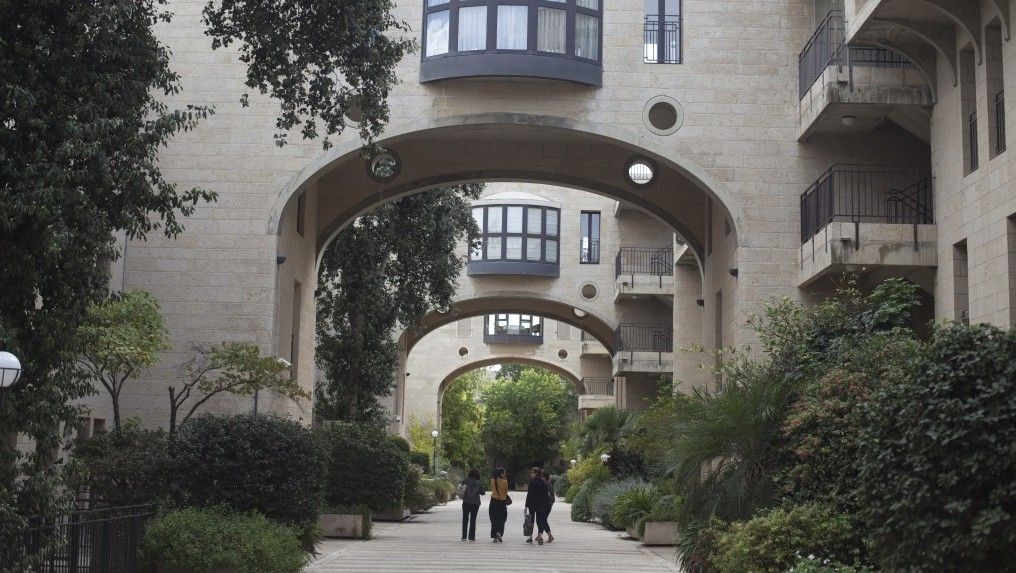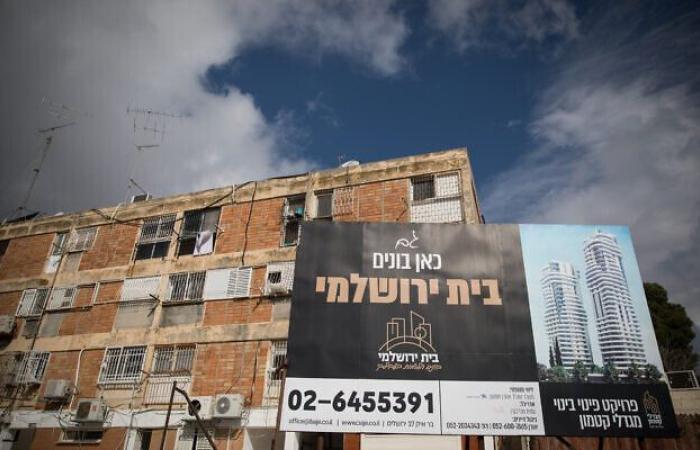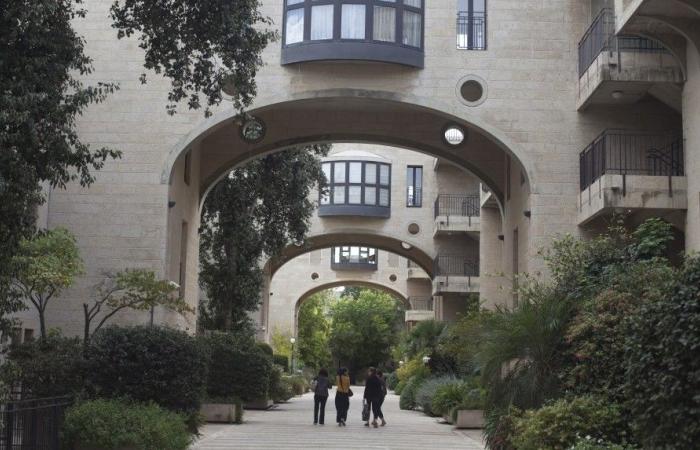As the war in Israel continues to rage on multiple fronts, the real estate market continues to defy expectations and property prices near record highs.
This paradox is not without raising some questions, and in particular this one: how can the demand for housing remain at a high level in a country in the grip of such turmoil?
It is in fact a combination of factors – including long-standing housing shortages, strong population growth and strong foreign investment – that is keeping demand high, even as the conflict has negative effects on construction sites and economic stability.
Receive our daily edition for free by email so you don’t miss the best news. Free registration!
The activity of this market is not without posing significant problems for first-time buyers, who find themselves driven out of city centers.
According to the latest Alrov index relating to housing access, for the second quarter of 2024, housing prices have become unaffordable, comparable to those of the second quarter of 2023.
This index, which measures the affordability of housing, in terms of monthly loan repayments and down payment required for acquisition, highlights the growing difficulties encountered by many Israelis wishing to access property.
Danny Ben-Shahar, co-author of the report and director of the Alrov Institute for Real Estate Research at Tel Aviv University’s Coller School of Management, says the sharp rise in prices began well before the war.
“If we look at the last ten years, we see that prices started to increase around 2007, with a brief stabilization before 2020. And in the last two years, prices have increased sharply again,” explains -he at Times of Israel.
The war – which began in October 2023 when thousands of Hamas terrorists invaded Israel to massacre 1,200 people and take 251 hostages, since sequestered in the Gaza Strip – might suggest that the real estate market has slowed down, but the demand does not weaken.
“What surprises me is that despite the conflict, demand remains strong. People are still investing in Israeli real estate,” adds Ben-Shahar. Figures from Israel’s Central Bureau of Statistics (CBS) support this claim: prices continue to increase by six to seven percent each year.
Danny Ben-Shahar, director of the Alrov Institute for Real Estate Research at the Coller School of Management at Tel Aviv University. (Courtesy of Micha Loubaton)
A complex network of economic forces
To understand this anomaly, experts cite a set of macroeconomic factors that have their roots well beyond the war.
Nir Mualam, professor of architecture and urban planning at Technion – Israel Institute of Technology in Haifa, recalls that even before the conflict, housing prices had increased significantly due to systemic problems in the Israeli market.
“The main problem is the chronic shortage of housing, which existed well before the war,” he explains. “Israeli planning simply cannot produce enough housing to meet demand. »
Further fueling this demand is Israel’s booming population, which has one of the highest growth rates in the developed world.
According to CBS, Israel’s population grew by 1.6% in 2023 alone.
“With 2.6 million households in Israel, we need 55,000 to 65,000 additional housing units each year just to keep pace with population growth,” says Ben-Shahar.
The maternity ward of Bikur Holim Hospital in Jerusalem. Illustration. (Credit: Flash90)
However, it is impossible. Mualam mentions the trend to “buy off plan” – buyers acquire a home even before its actual construction – which provides developers with an initial investment but provides no guarantee in terms of delivery times. This practice has had the effect of accentuating the speculative side of the housing market: prices continue to increase, reflecting expectations and not deliverable construction.
The impact of the war on the construction sector
The war exacerbated the housing shortage, mainly due to difficulties in the construction sector. Palestinian workers, who make up a significant portion of the Israeli construction workforce, have essentially disappeared from the market since October 2023. This labor shortage has shut down a very large number of many projects that were underway.
Mualam notes that before the war, the COVID-19 pandemic had already reduced the capacity to build new housing, as workers from the West Bank and Gaza were unable to access major Israeli cities.
As the war worsens, construction companies are experiencing delays due to the mobilization under the IDF reserve of their owners or employees, which affects the ability to plan and carry out new projects.
Contacted for comment on the matter, the head of the HKR Construction group in Kfar Saba responded by SMS that he was currently in the reserve in the north and was not available to discuss the matter. the impact of the situation on his business.
This is an illustration of the consequences of the conflict on the housing sector.
Rising interest rates and international demand
Another factor contributing to the high cost of housing in Israel is the recent surge in interest rates. Ben-Shahar explains that the war led to an increase in Israel’s risk premium and a significant drop in its credit rating. The Central Bank maintains high interest rates to combat inflation but property prices continue to rise.
Yet unlike other countries, inflation expectations in Israel remain stubbornly high.
“Talks about further interest rate hikes are underway,” says Ben-Shahar, suggesting the situation could get even worse before it gets better.
Domestic demand for real estate has slowed somewhat due to the war and the economic difficulties it brought, but foreign interest in Israeli real estate has increased significantly.
Real estate broker Yuri Wolosov, of the Armon real estate agency in Bat Yam, speaks of a notable influx of foreign buyers, particularly from the United States and France.

The luxurious Mamila neighborhood in Jerusalem, October 27, 2015. (Lior Mizrahi/Flash90)
“I receive calls from wealthy Jewish clients, in New York or Paris, who want to buy property in Israel, not for immediate use, but rather as a risk hedge against the rise of anti-Semitism in their country” , analyzes Wolosov.
Indeed, the Anti-Defamation League (ADL) has recorded more than 10,000 anti-Semitic acts in the United States since October 7, 2023, or 60% more than the previous year. “People are afraid,” adds Wolosov. “They have the feeling that something even worse is brewing. »
Despite fears, the wealthy clients he works with aren’t shy about spending. “They buy goods worth 4 or 5 million shekels without credit,” he continues. “These are not cheap goods. »
The first-time buyer crisis
For first-time buyers, the current market is an almost insurmountable challenge. Ben-Shahar acknowledges that the situation is dire, especially for those who want to settle in central areas of Israel.
“A large part of Israeli households can no longer afford a house in central cities like Tel Aviv or Jerusalem, forcing them to turn to peripheral areas like Beersheba or Haifa,” he explains.
High housing prices, combined with soaring interest rates, are forcing many first-time buyers out of the market.
“This rise in prices and these high interest rates create a situation that is simply untenable for first-time buyers,” summarizes Ben-Shahar.

An ultra-Orthodox woman reads a book next to her stroller on the beach (Tsafrir Abayov/Flash90)
A Shift in Home Buyers’ Priorities
The war also influences the choices of buyers.
Mr. Wolosov explains that, among those who can still purchase, demand is strong in the segment of new goods with integrated secure rooms – mamad –, a sign of increased security concerns. For some, modernizing older properties to provide reinforced secure rooms has become a priority, particularly for those who cannot find rehousing.
Eli Perlowitz, an independent contractor specializing in renovation in Jerusalem with his company Jerusalem Construction, confirms the increased demand for the development of secure rooms.
“I am receiving more and more requests from customers who want to strengthen their secure room. Some even want to install sheds in their gardens,” adds Perlowitz.
“Given the current situation, having a secure place in your home has become the most important. »









